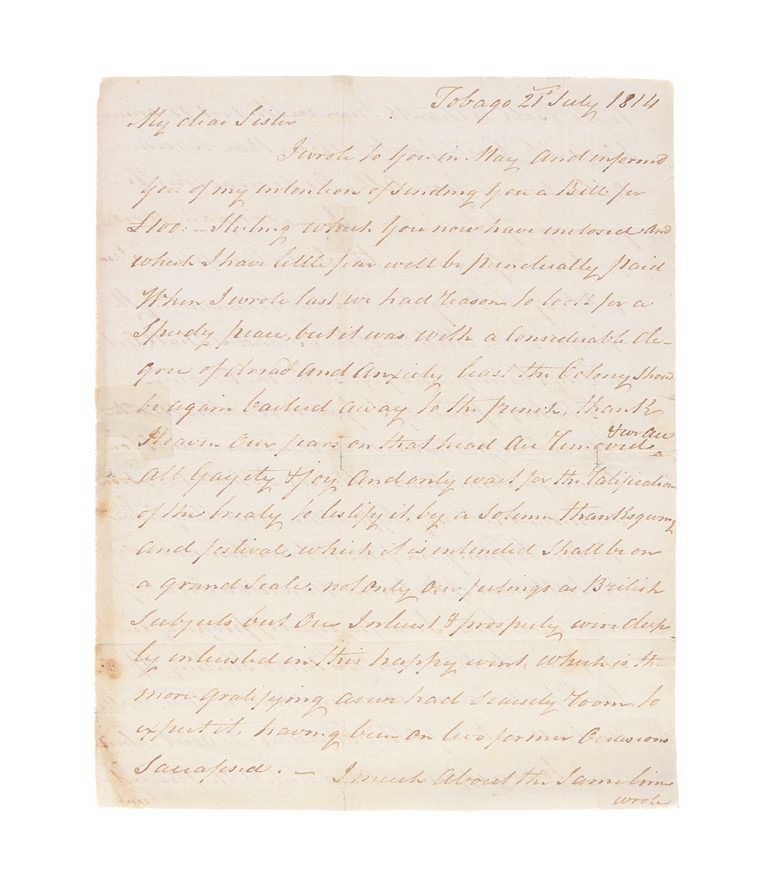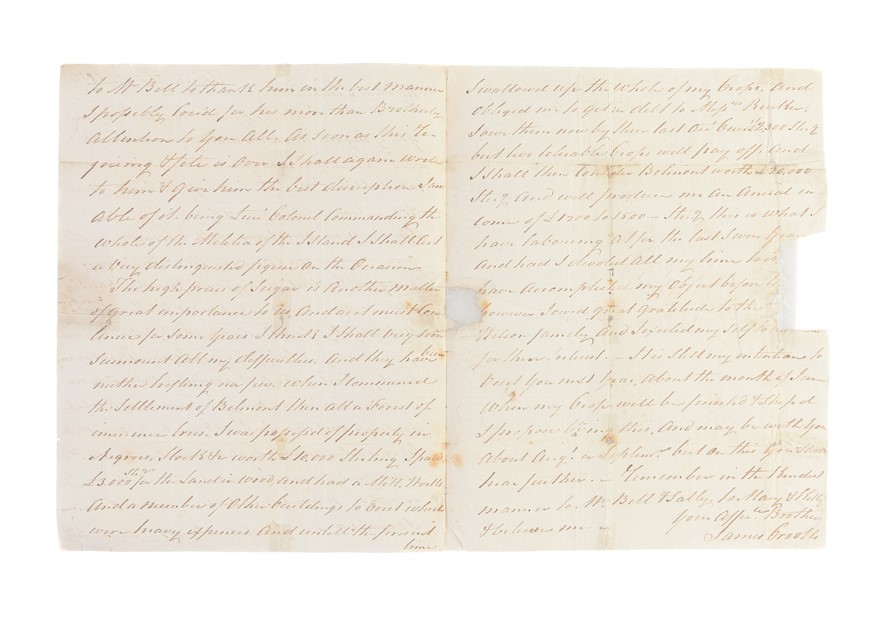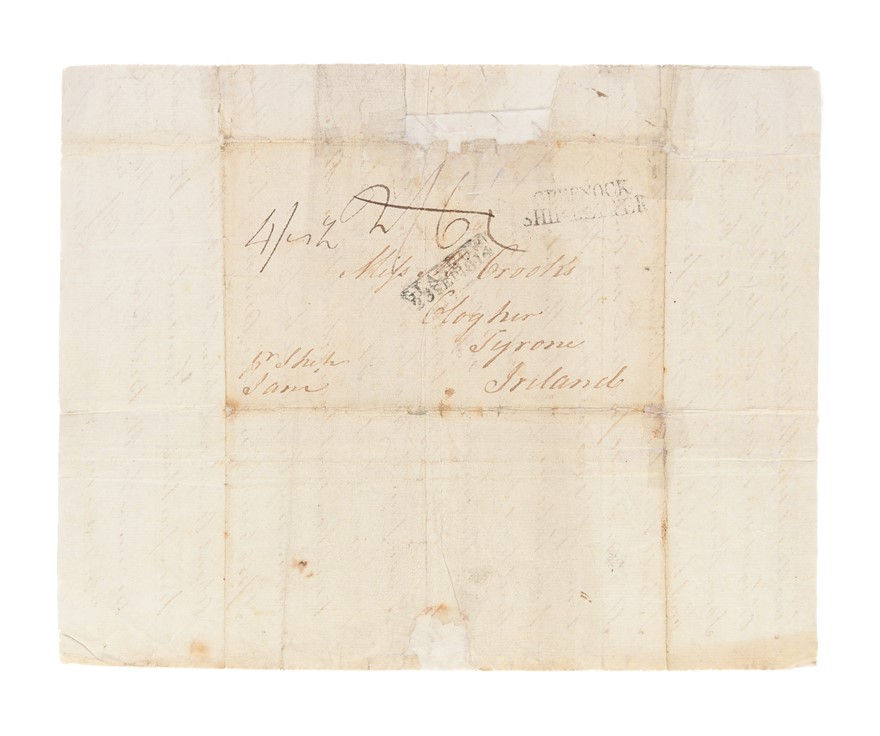ALS to his sister discussing the fate of the colony.
TOBAGO ; CROOKS James (1814.)
£500.00
NEWS FROM A SUGAR PLANTATION IN TOBAGO
Manuscript in ink. 4to. Poorly opened, some minor loss to text, repaired with archival tape infill. 4pp. Tobago, 21 July,
James Crooks writes to his sister of his fortunes on his sugar plantation, Belmont, in Tobago. He states: "When I wrote last we had reason to look for a speedy peace, but it was with a considerable degree of dread and anxiety least the Colony should be again bartered away to the French."
The letter gives an overview of the finances and infrastructure involved in running a plantation in the Caribbean, as well as the reliance on enslaved labour: "When I commenced the settlement of Belmont then all a Forest of immense trees, I was possessed of property in Negroes, Stock &c. worth of £10,000 sterling. I paid £3,000 Strg for the land in wood, and had a mill, works and a number of other buildings to erect which were heavy expences and untill the present time swallowed up the whole of my crops, and obliged me to get in debt to Messrs Rucker. I owe them now by their last Acct Currt £2,300 Strg, but two tolerable cops will pay off, and I shall then consider Belmont worth £20,000 Strg and will produce me an annual income of £1200 to £1500 Strg. This is what I have labouring after the last seven years ..."
He also emphasises the importance of a high price for sugar and expresses a hope that it continues for years to come. This was not to be. The market for sugar in 1814 was strong, with the price given in the 1831 Parliamentary Sugar Refining Bill at 3l. per cwt. The same bill describes its subsequent fall to 32s. in 1826 and 22s by 1831. These low prices reflected a market flooded with product, both from the plantations of the Caribbean, the Americas, and also increasingly South East Asia. The impact of abolitionist sugar boycotts would also have been felt, with households encouraged only to buy from countries which did not use enslaved labour.
The Belmont estate was in the parish of St. George and not to be confused with the other in St. John. In 1819, held an enslaved workforce of roughly 85 men and women, which rose to 113 by 1825. Crooks died in Tobago in 1826. According to the Legacies of British Slavery records, the settlement for his estate of £2251 4s 9d was paid out in 1836, in part to his son William Crooks, described as a man of colour.
Stock Code: 204570






